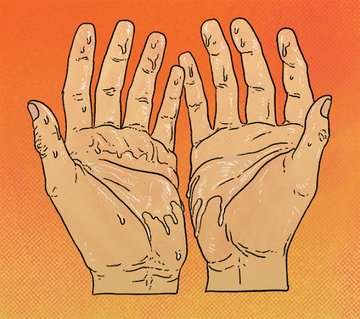Dehydration has a serious impact on your body. As your body loses water it loses the ability to function and regulate properly. In addition to water, you lose the essential nutrients that keep you safe and healthy. At a more minor phase, this makes you thirsty. As dehydration becomes more severe, you are at risk of fatal heatstroke.
Here are some quick tips to manage dehydration through prevention and monitoring.
Consume Enough Fluid
The old, “eight glasses of water a day,” recommendation has been largely dismissed. Some experts claim you need far more, while others suggest you need less.
The truth is there are simply too many factors that impact how much water you should drink. These factors vary from person-to-person and from day-to-day. For instance, your environment, season, diet, weight, activity, and general health can all impact how much fluid you require on a given day.
As such, there is no accurate prediction for a set number of glasses to consume, even on an individual basis. Instead, your best bet is to self-monitor. Pay attention to your body, drink when you’re thirsty, and look for signs of over or underhydration.
The best ways to self-monitor hydration are in the bathroom. First, pay attention to frequency. The average person urinates five to eight times per day. If you’re going more or less often than usual, adjust your fluid consumption.
Next, pay attention to urine color. With proper hydration, urine should appear light yellow. If it is too dark indicates dehydration, and a clear appearance may indicate overhydration. Bright, almost neon colors may come from too many vitamins or overconsumption of sports and energy drinks.
Include healthy foods like fruits in your hydration plan. About ⅕th of our hydration comes from what we eat.
Rehydration
Once enough fluids have been lost, it’s time to switch from passive hydration to active rehydration.
Water is the staple of hydration, but it may not be enough to replace other nutrients that have been lost. When we dehydrate, especially through sweat, we lose essential minerals and nutrients. Water alone cannot replace these. Look to clear broths or sports drinks to further benefit rehydration.
In the most severe cases, intravenous (IV) fluid may be necessary. Of course, leave this to medical professionals.
If possible rehydrate in a cool area, away from direct sunlight. If you have been exerting yourself or in heat, stick to room temperature fluids. Drinking cold fluids can shock your system when it is overheating.
Stay Cool
A good way to prevent dehydration through sweating is to keep your body temperature down. Avoid direct sun exposure at peak temperatures and daylight. Indoors, take advantage of windows, air conditioning, and fans.
Another habit you can apply anywhere and at any time is to wear cool, breathable clothing and undershirts. Moisture-wicking shirts don’t just get rid of sweat, they also reduce perspiration.
Stay Away From Certain Beverages
Avoid dehydrating beverages like caffeine, sugary drinks, and alcohol. You don’t have to completely remove them from your diet, but it is best to limit them. They can contribute to overheating, dehydration, and increase sweat production.
If you are already dehydrated, or at risk of dehydration, it is best to avoid them altogether.
Be Aware of Elevated Risk Factors
Age (65+), diabetes, and illness are a few common factors that can greatly increase your risk of dehydration. Take extra precautions to maintain proper hydration to stay safe and comfortable.
With smart planning and mindful monitoring, you can prevent most instances of dehydration. Stay safe and sweat-free!








